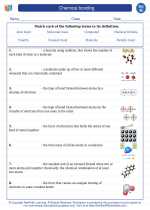Chemical bonding -> transportation
Transportation
Transportation is the movement of people, animals, and goods from one place to another. It is an essential part of our daily lives and involves various modes such as cars, buses, trains, airplanes, ships, and bicycles. The study of transportation involves understanding the principles of motion, energy, and the technologies that enable the movement of objects and people.
Modes of Transportation
There are several modes of transportation:
- Land Transportation: This includes vehicles such as cars, buses, motorcycles, and bicycles that travel on roads and railways.
- Air Transportation: This mode involves the use of airplanes and helicopters to transport people and goods through the air.
- Water Transportation: Ships, boats, and ferries are used for transporting goods and people over water bodies such as oceans, seas, and rivers.
- Public Transportation: This includes systems like buses, trains, and subways that are used for mass transit in urban areas.
Principles of Transportation
Transportation is governed by several principles:
- Motion: The study of motion is fundamental to transportation. It involves understanding concepts such as speed, velocity, and acceleration.
- Energy: Transportation requires the use of energy to move vehicles. This involves understanding the different types of energy sources used in transportation, such as fossil fuels, electricity, and renewable energy.
- Infrastructure: The infrastructure, including roads, airports, and ports, plays a crucial role in enabling the smooth movement of vehicles and goods.
- Sustainability: With the growing concern for the environment, the concept of sustainable transportation has become important. This involves studying ways to minimize the environmental impact of transportation activities.
Study Guide
To study transportation effectively, it is important to focus on the following areas:
- Understand the fundamental principles of motion, energy, and infrastructure as they relate to transportation.
- Explore the various modes of transportation and their specific characteristics and uses.
- Examine the historical and technological developments in transportation, including the evolution of vehicles and transportation systems.
- Consider the environmental and social impacts of transportation and the efforts being made to create more sustainable transportation systems.
- Engage in hands-on activities such as building model vehicles or researching specific transportation challenges and solutions.
By studying transportation, you will gain a deeper understanding of how the movement of people and goods shapes our world and the technologies and systems that make it possible.
.◂Science Worksheets and Study Guides Eighth Grade. Chemical bonding
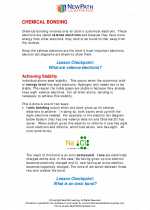
 Worksheet/Answer key
Worksheet/Answer key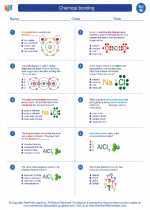
 Worksheet/Answer key
Worksheet/Answer key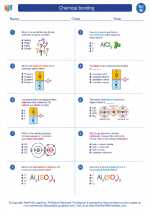
 Worksheet/Answer key
Worksheet/Answer key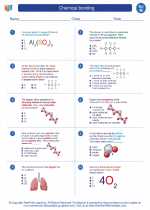
 Vocabulary/Answer key
Vocabulary/Answer key